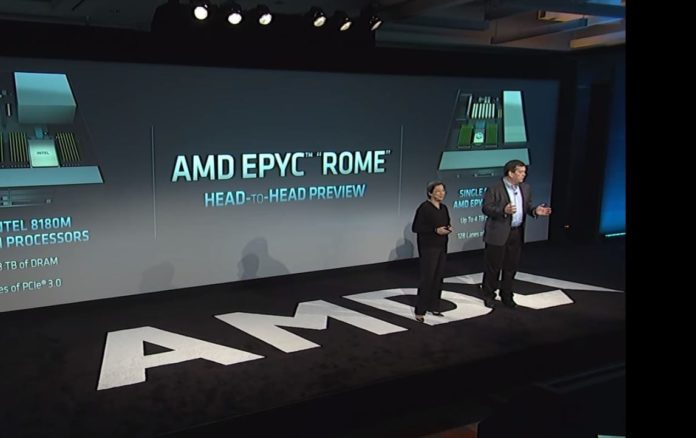AMD has revealed new information about a raft of upcoming EPYC processors for the server market. EPYC Milan and EPYC Genoa will succeed
We’re interested to see what AMD has in store for the server market because the Zen-based EPYC Rome has shaken up the market and loosened Intel’s hold for the first time in literal decades.

Both Milan and Genoa are set to incorporate substantial changes. Milan will be a Zen 3 part and will maintain support for existing sockets, limiting upgrade costs. It’ll still be a 64-core part but will feature support for PCI-E 4, opening the road to faster storage media. In the desktop space, Milan will arrive as the Ryzen 4000 series, while Genoa will accompany Ryzen 5000.
With Zen 3, AMD’s focus is on improving performance per watt. This would allow for larger server processors at better thermal and power limits. Since servers are left on 24/7, power consumption is a much bigger concern for these customers than for desktop users. An AMD server option that uses less power would make it even more attractive to clients looking to jump the boat from Xeon.
Genoa, meanwhile, points to the future. It’ll be based on Zen 4 and feature a new SP5 socket platform. Coming out in 2021, it is likely to also feature a node shrink to 5nm. This’ll likely be accompanied by a large leap in performance and the possibility of scaling to higher clocks. It is expected to come with DDR5 support and improved SMT, something that will be one of the main features of Zen 4.

Rome was launched just a few months back along with the Ryzen 3000 chips, while Milan is expected to land in 2020 alongside the Ryzen 4000 processors. Genoa, on the other hand, is still far away and no concrete launch date has been specified as of now.
Further Reading:


